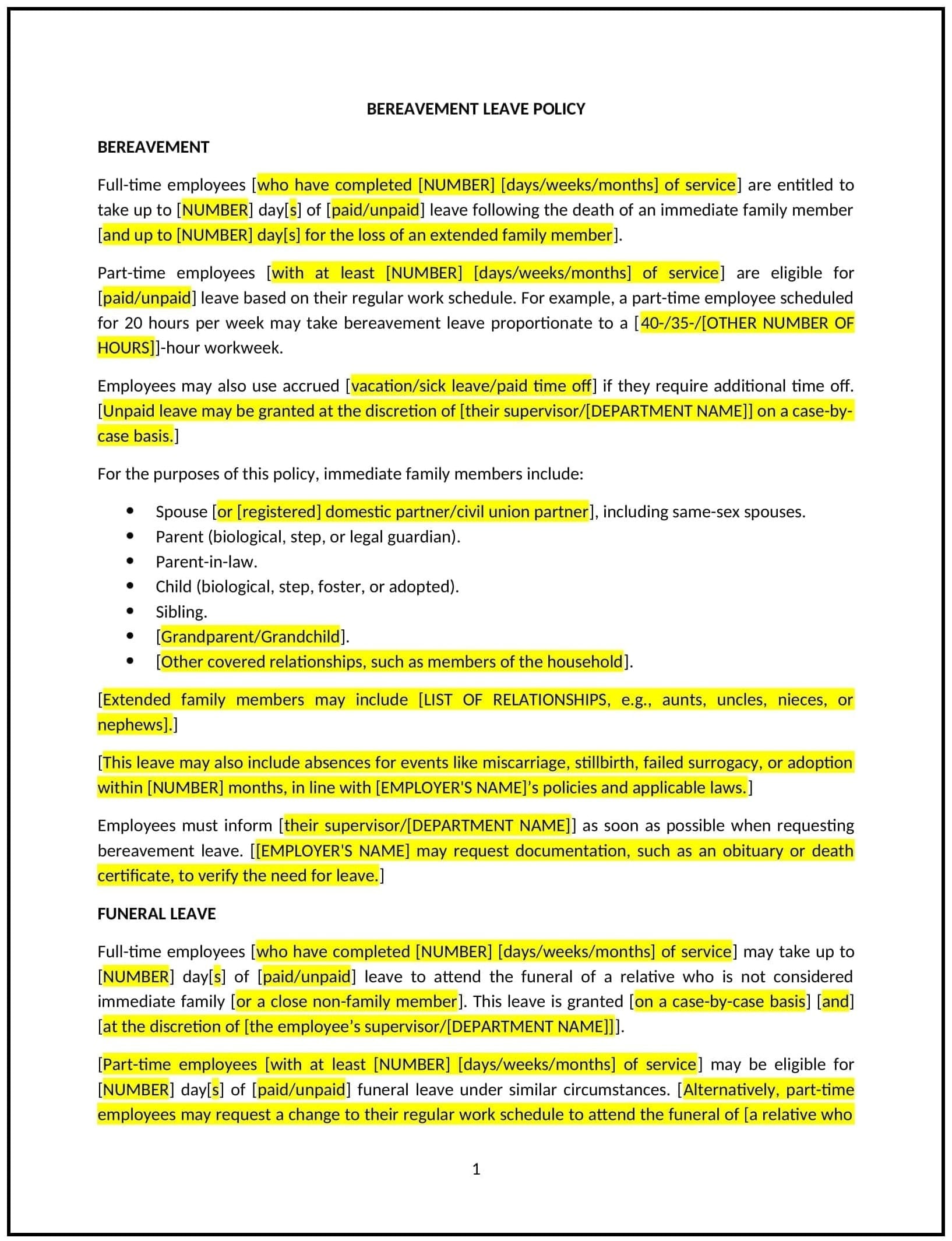Bereavement leave policy (Rhode Island): Free template
Got contracts to review? While you're here for policies, let Cobrief make contract review effortless—start your free review now.

Customize this template for free
Bereavement leave policy (Rhode Island)
This bereavement leave policy is designed to help Rhode Island businesses establish guidelines for employees taking time off to grieve and attend to matters following the death of a loved one. It outlines procedures for requesting leave, maintaining job protection, and supporting employees during difficult times.
By adopting this policy, businesses can demonstrate compassion, support employees’ well-being, and align with general best practices for leave management.
How to use this bereavement leave policy (Rhode Island)
- Define bereavement leave: Explain what constitutes bereavement leave, such as time off to attend a funeral or handle estate matters.
- Establish eligibility criteria: Specify which employees are eligible for leave, such as full-time or part-time staff.
- Set request procedures: Provide steps for employees to request leave, including required notice and documentation.
- Address job protection: Guarantee that employees will return to the same or an equivalent position after completing leave.
- Train managers: Educate supervisors on handling bereavement leave requests and maintaining workflow during employee absences.
- Review and update: Assess the policy annually to ensure it aligns with evolving business needs and employee expectations.
Benefits of using this bereavement leave policy (Rhode Island)
This policy offers several advantages for Rhode Island businesses:
- Supports employees: Demonstrates a commitment to helping employees grieve and manage personal matters during difficult times.
- Enhances employee trust: Shows employees that the business values their well-being and personal needs.
- Aligns with best practices: Provides a structured approach to managing bereavement leave.
- Reduces turnover: Encourages employees to stay with the business by creating a supportive work environment.
- Enhances reputation: Demonstrates a commitment to employee care and work-life balance.
Tips for using this bereavement leave policy (Rhode Island)
- Communicate the policy: Share the policy with employees and include it in the employee handbook.
- Provide training: Educate managers on handling bereavement leave requests and maintaining workflow during employee absences.
- Monitor adherence: Regularly review leave requests to ensure they are addressed promptly and fairly.
- Address issues promptly: Take corrective action if bereavement leave requests are mishandled or denied improperly.
- Update regularly: Assess the policy annually to ensure it aligns with evolving business needs and employee expectations.